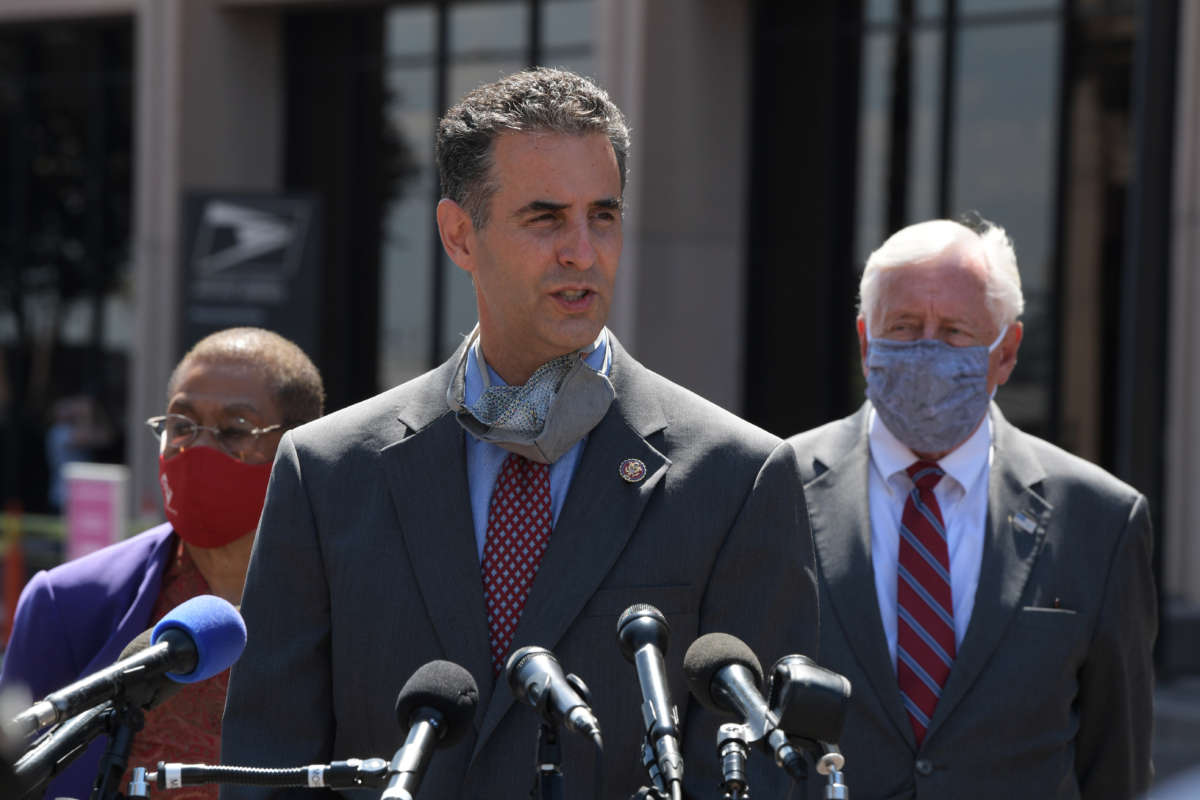A sweeping package of voting-rights, government-ethics and anti-corruption measures failed to make it through Congress in 2019, but an updated version of the bill is at the top of Democrats’ agenda.
Proponents say the aftermath of the 2020 election and last week’s violent attack on the U.S. Capitol makes the need for the legislation more urgent. “If anything, I think the imperative for democracy reform has only grown since 2019,” said Rep. John Sarbanes, D-Maryland, the bill’s sponsor. The legislation “responds directly to this moment when we need to strengthen our democracy.”
The 2020 election brought new attention and endless second-guessing to the patchwork of laws and rules governing vote by mail and other key features of elections. Proponents of the bill known colloquially as H.R. 1 — which incorporates voting rights legislation introduced by the late Rep. John Lewis, a Georgia Democrat and civil rights leader — say it would standardize aspects of federal elections and voter registration and increase access to the ballot. The bill would, among other things, create national no-excuse absentee voting and restore the right to vote in federal elections for people with felony convictions who have completed their sentences.
Known formally as the For the People Act, the bill also contains a series of provisions dealing with campaign finance and ethics, such as creating a small-dollar donor matching program to fund elections, instituting new requirements for disclosure of those behind online political ads, and proposals meant to address Trump administration-era scandals.
This time, with Democrats in control of both houses of Congress and the White House, and given that the bill already ran the gamut of legislative hearings and markups during the last Congress, reform and watchdog groups that support the legislation are hopeful it will become law. They expect it will pass the House within the first 100 days of the new Congress. Final passage still may not be easy because Democrats don’t have enough votes to overcome a filibuster in the Senate.
“While neither party will have 60 seats in the Senate any time soon, there are a number of options being considered to get his bill across the finish line,” said Aaron Scherb, director of legislative affairs for the watchdog nonprofit group Common Cause, which supports the bill.
H.R. 1 would commit Congress to building a legislative record proponents say would be necessary to document the need to restore preclearance requirements in the Voting Rights Act that were struck down by the Supreme Court in the 2013 Shelby v. Holder case. Separate legislation is pending to restore the Voting Rights Act, and Sarbanes and other proponents said such a record, documenting the need for preclearance of changes that affect voting, would be essential in the event of another court case challenging the requirements.
We’re not backing down in the face of Trump’s threats.
As Donald Trump is inaugurated a second time, independent media organizations are faced with urgent mandates: Tell the truth more loudly than ever before. Do that work even as our standard modes of distribution (such as social media platforms) are being manipulated and curtailed by forces of fascist repression and ruthless capitalism. Do that work even as journalism and journalists face targeted attacks, including from the government itself. And do that work in community, never forgetting that we’re not shouting into a faceless void – we’re reaching out to real people amid a life-threatening political climate.
Our task is formidable, and it requires us to ground ourselves in our principles, remind ourselves of our utility, dig in and commit.
As a dizzying number of corporate news organizations – either through need or greed – rush to implement new ways to further monetize their content, and others acquiesce to Trump’s wishes, now is a time for movement media-makers to double down on community-first models.
At Truthout, we are reaffirming our commitments on this front: We won’t run ads or have a paywall because we believe that everyone should have access to information, and that access should exist without barriers and free of distractions from craven corporate interests. We recognize the implications for democracy when information-seekers click a link only to find the article trapped behind a paywall or buried on a page with dozens of invasive ads. The laws of capitalism dictate an unending increase in monetization, and much of the media simply follows those laws. Truthout and many of our peers are dedicating ourselves to following other paths – a commitment which feels vital in a moment when corporations are evermore overtly embedded in government.
Over 80 percent of Truthout‘s funding comes from small individual donations from our community of readers, and the remaining 20 percent comes from a handful of social justice-oriented foundations. Over a third of our total budget is supported by recurring monthly donors, many of whom give because they want to help us keep Truthout barrier-free for everyone.
You can help by giving today. Whether you can make a small monthly donation or a larger gift, Truthout only works with your support.
